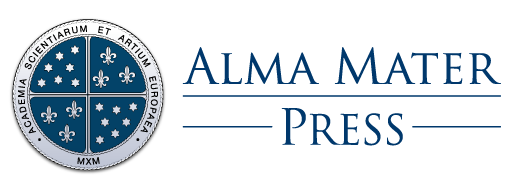Maja Smrekar’s Biopolitical Manifesto from a Philosophical Perspective
DOI:
https://doi.org/10.33700/1580-7118.19.2.65-80(2017)Keywords:
biopolitics, Other, bio art, Maja Smrekar, bio-power, performance art, K-9_topology, Hybrid FamilyAbstract
With her series K-9_topology, Maja Smrekar is challenging anthropocentrism by linking biology and culture, in particular addressing interaction between human and animal species. The artist builds upon the recent scientific findings that it is not only the dog species that has been domesticated; the domestication that took place during evolution is to be considered mutual. Not only has the dog been mastered by the human, but dogs have had an active role in “using” the human species for a more comfortable survival as well. Both species coexist. In the project Ecce Canis Maja Smrekar built upon the sense of smell as an interface used to trigger the emotional connection between the species.
Hybrid Family is another project in the K-9_topology series. In this performance Smrekar nurtured a puppy. By submitting herself to two and a half months of physiological training, she achieved milk production in her breasts. The artist refers to this process as to the process of becoming, of becoming-animal, becoming-woman and becoming m(Other). She is deeply rooted in her own experience at the beginning of the 3rd millennium, when “liberal capitalism finally struck hard into the newborn Slovenian economy”, as she writes in her blog: her parents lost their business, house, cars, forests, meadows and vineyards, and her father committed suicide. She finds her own way of resisting, which is in submitting herself to a “dog-human kinship relationship as a radical intimate action of ‘returning home’”.
In the present paper, the process of becoming mother is analysed in relation to the process of becoming animal. Furthermore, the process of becoming (m)Other is particularly examined with reference to the mother-and-child unity, applying the Umwelt notion and a Hegelian, existentialist feminist and post-structuralist discussion of identity and difference. The process of becoming (m)Other is finally examined as a biopolitical statement or intervention with the investment of the artist’s body. Its purpose is to re-gain the position of power, i.e. to perform an act of resistance to bio-power on and through bodies.
Downloads
References
AGAMBEN, G. (2004): Open. Man and Animal, trans. by Kevin Attell, Stanford University Press, Stanford.
BEAUVOIR, S. de (2010): The Second Sex, trans. by Constance Borde and Sheila Malovany-Chevallier, Vintage Books (Random House), New York.
DERRIDA, J. (2008): The Animal that Therefore I Am, trans. by David Wills, Fordham University Press, New York.
HEGEL, G. W. F. (2010): The Science of Logic, trans. by George di Giovanni, Cambridge University Press, Cambridge.
HEIDEGGER, M. (1995): The Fundamental Concepts of Metaphysics: World, Finitude, Solitude, trans. William McNeill and Nicholar Walker, Indiana University Press, Bloomington.
KRISTEVA, J. (1987): Tales of Love, New York: Columbia University Press.
UEXKÜLL, J. von, KRISZAT,G. (1934): Streifzüge durch die Umwelten von Tieren und Menschen, Springer, Berlin.
UEXKÜLL, J. von (2010): A Foray into the Worlds of Animals and Humans, trans. by Joseph D. O’Neil, University of Minnesota Press, Minneapolis, London.
http://majasmrekar.org/k-9_topology

